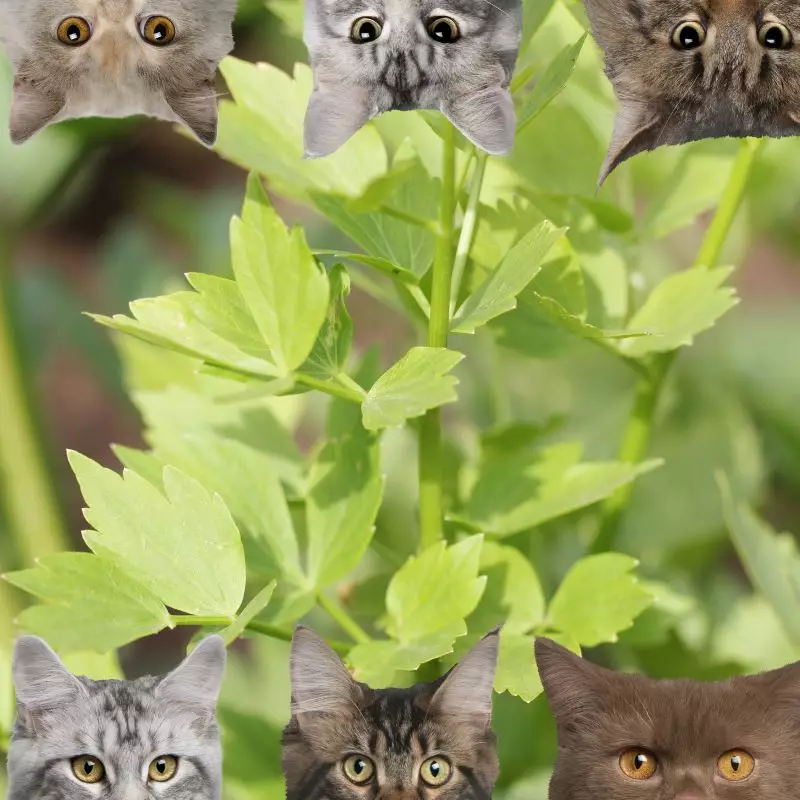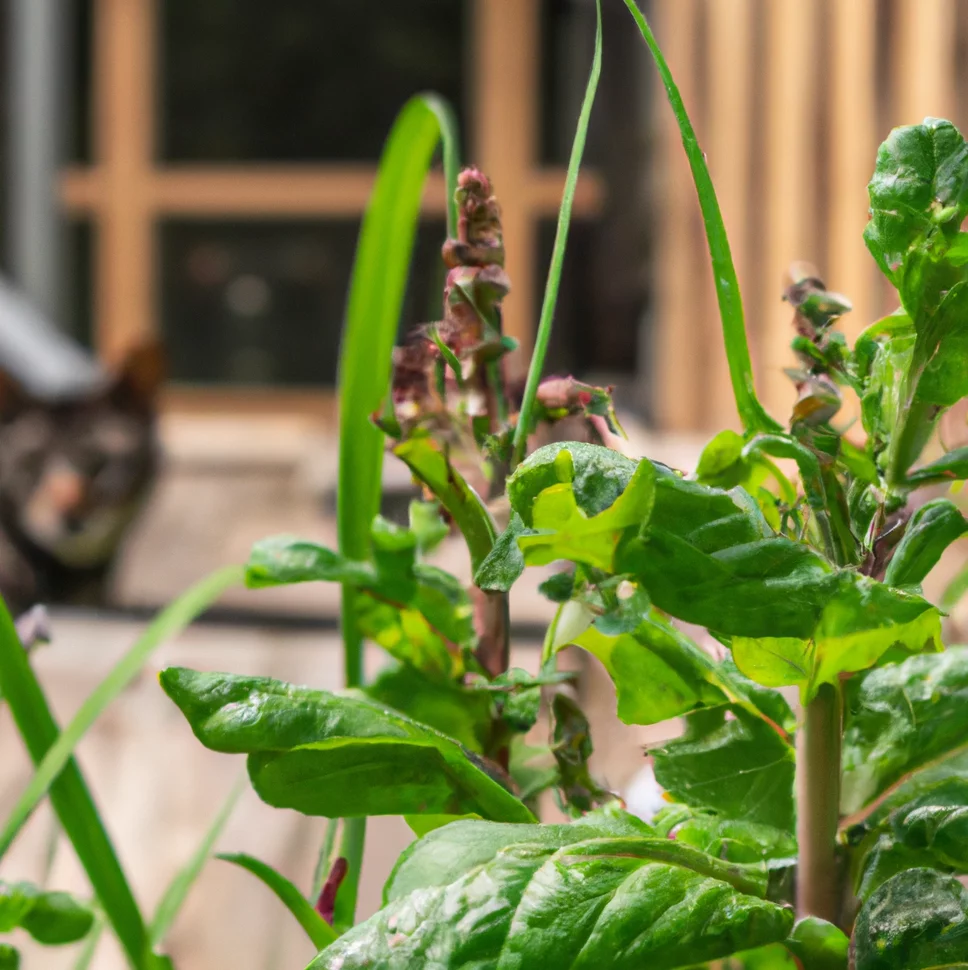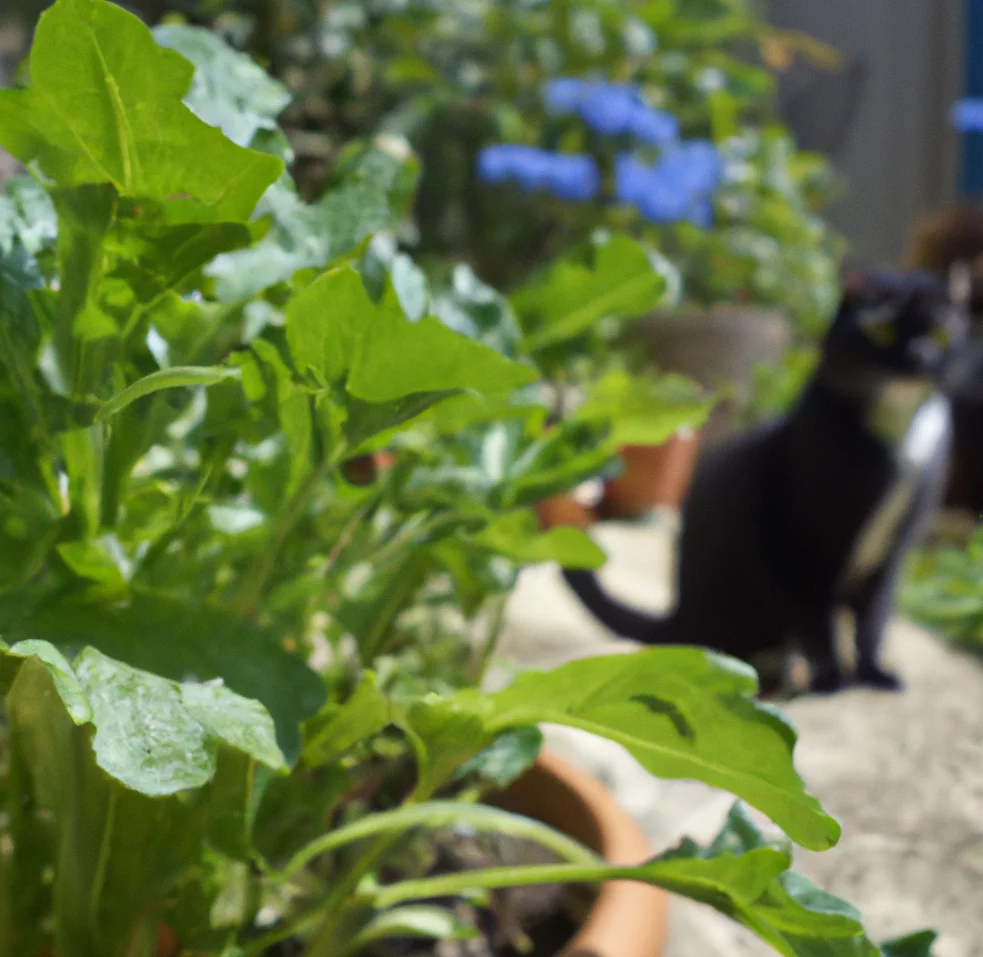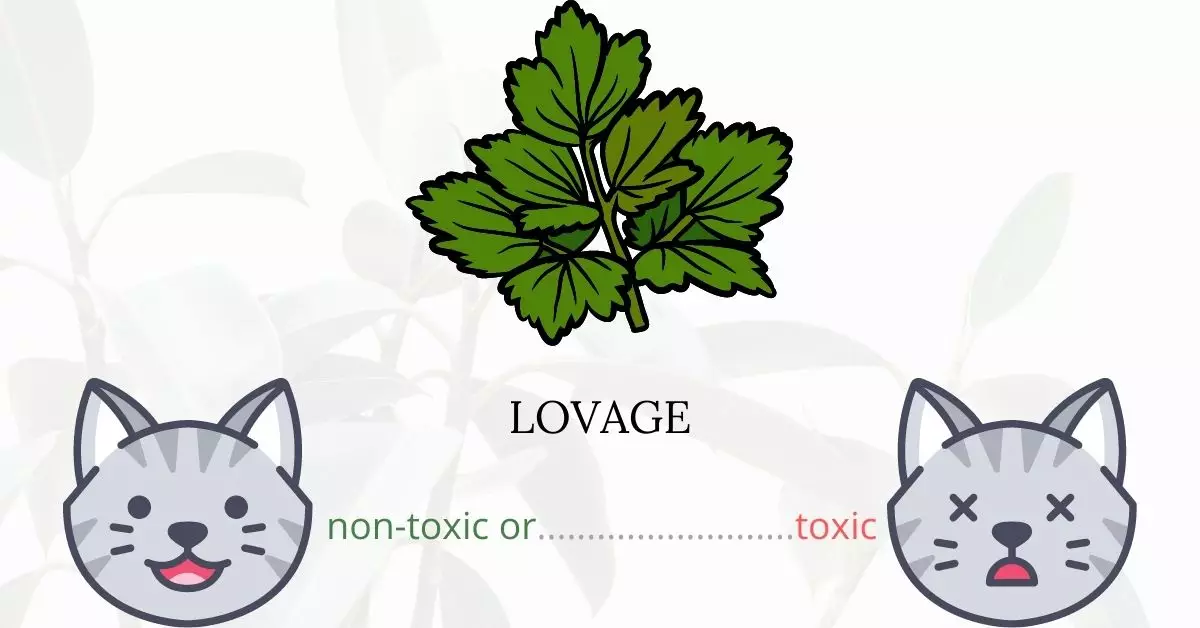Lovage, while grown primarily for medicinal purposes, contains compounds that can be harmful to cats. Specifically, it has phthalide lactones and furanocoumarins. The former can stimulate the pancreas in cats, leading to an increase in urine output due to the loss of fluids. The latter causes photosensitivity in cats by interacting with their cells and diminishing their defense against ultraviolet light, leading to cell damage and death. It is essential for cat owners to recognize these risks when considering the plants in their environment.
This article was crafted in collaboration with a team of experienced DVMs (doctors of veterinary medicine). Their insights ensure that we provide accurate and up-to-date information about the potential risks associated with various plants, with a focus on Lovage in this instance. Furthermore, to guarantee the reliability of our information, we extensively referenced high-authority websites like ASPCA and PetMD for each plant under discussion.
Clinical Signs of Lovage Poisoning in Cats

Lovage poisoning in cats manifests differently than many other types of plant poisoning, often exhibiting subtler symptoms. While it may be challenging to identify these signs immediately, understanding the causes behind each symptom can provide clarity for concerned cat owners.
- Diuretic Effects: The presence of phthalide lactones in Lovage promotes fluid loss by stimulating the cat’s pancreas, leading to an increase in urine production. This results in the symptom of increased urination.
- Lethargy or Laziness: After ingestion, the cat might feel unwell or be impacted by the diuretic effects of the plant, making them feel drained or less energetic than usual.
- Photosensitivity: Furanocoumarins in Lovage cause photosensitivity in cats. Once consumed, these compounds interact with the cat’s cells, weakening their protection against ultraviolet light. This leads to cell damage and death, making the cat more sensitive to light sources, and potentially causing sunburn or other skin issues when exposed to strong sunlight.
Cat owners should remain vigilant and consult a veterinarian if they notice any of these signs, especially if they’re aware their cat has had contact with or consumed Lovage. Immediate attention can prevent further health complications.
First Aid and Treatment of Lovage Poisoning in Cats

One of the most dangerous adverse effects of lovage poisoning is dehydration. As a result, the veterinarian’s first goal will most likely be to rehydrate your cat, and he will likely begin fluid treatment. This will immediately inject fluids into your cat’s body, quickly rehydrating them while also assisting with the removal of lovage toxins from their system. The veterinarian may also opt to give activated charcoal to your cat or perform gastric lavage whichever he may deem appropriate for your cat’s condition. Medications to alleviate other symptoms that your cat is experiencing may also be prescribed to your cat.
Recovery from Lovage Poisoning in Cats

In most cases of lovage poisoning, cats typically recover within a week if they are not exposed to the plant again. The vet will not usually insist on a follow-up appointment unless the cat was severely impacted or has developed health complications.
When you get home with your cat, provide him or her ample supply of fluids. Keep them calm and comfortable indoors while they are regaining their strength.
Prevention of Lovage Poisoning in Cats
Growing lovage plants is not recommendable in residences with cats. If you are using lovage in your cooking, it is best to store it in cabinets or drawers that your cat cannot access. If there are lovage plants growing in your surrounding areas, minimize your cat’s access outdoors.
If you love plants but have cats at home, check out these lists:





